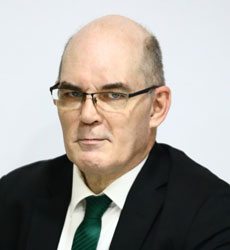 “Infrastructure” is one of those lollipop concepts, like “fighting crime and corruption” or “helping the poor,” that has become more useful to politicians as a virtue signal than it is as a path to actual innovation and growth, and to some extent that has been the case during the Duterte administration. That it is perhaps an unavoidable dilemma emerged during the discussion in our latest Manila Times online forum on Thursday with our keynote speaker, Presidential Adviser on Flagship Programs and Projects Vince Dizon, who is also the CEO of the Bases Conversion and Development Authority.
“Infrastructure” is one of those lollipop concepts, like “fighting crime and corruption” or “helping the poor,” that has become more useful to politicians as a virtue signal than it is as a path to actual innovation and growth, and to some extent that has been the case during the Duterte administration. That it is perhaps an unavoidable dilemma emerged during the discussion in our latest Manila Times online forum on Thursday with our keynote speaker, Presidential Adviser on Flagship Programs and Projects Vince Dizon, who is also the CEO of the Bases Conversion and Development Authority.
Infrastructure can be defined in a reasonably accurate general way as “the basic physical and organizational structures and facilities needed for the operation of a society or enterprise.” In our modern age, we understand infrastructure in the context of state responsibilities to comprise things such as transportation facilities (roads, railroads, airports, ports and canals), energy and related utilities (electricity generation and distribution, water systems), communications systems (radio, television, telephone, internet), and vital public services (government facilities, medical facilities, schools).
Continue reading with one of these options:
Ad-free access
P 80 per month
(billed annually at P 960)
- Unlimited ad-free access to website articles
- Limited offer: Subscribe today and get digital edition access for free (accessible with up to 3 devices)


